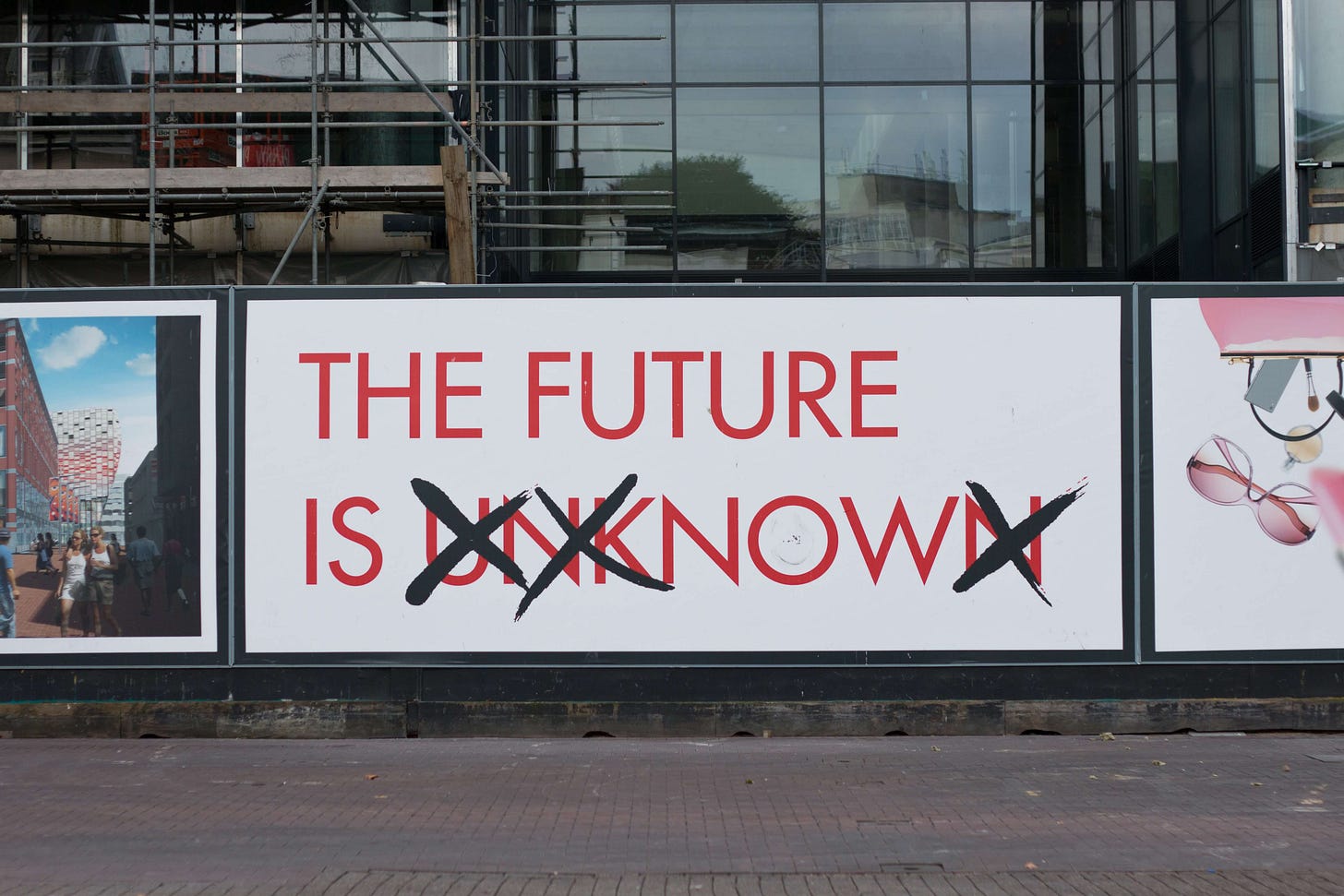New photography: Humans & machines, pt 1
A trilogy on the future of image-making. Part 1: The new reality in photography
During the quiet days of the Christmas holiday, while putting the finishing touches to a new edition of Darkrooms Magazine, I finally had space to reflect on the major changes in our craft. Between selecting portfolios and editing articles, I was struck by how rapidly the world of photography is changing around us.
In this three-part series, I share the insights that emerged during this reflective period. Not as absolute truths, but as observations from someone who stands with one foot in traditional photography and the other exploring new possibilities. It was during those quiet December days, free from daily deadlines and projects, that it became clear we are at a fascinating turning point.
Photography is at a turning point. As a photographer, I experience how rapidly our craft is changing. Not just through new cameras or lenses, but through a fundamental shift in how we create images and what they mean. In this three-part series, I share my observations about this fascinating development, starting with the new reality we find ourselves in. This is the first part:
The New Reality of Photography
Recently, I stood in a museum before a photograph of a sunset. Beautiful image, but the question occupying my mind wasn't about its beauty, but how 'real' it was. Was this a single shot or a blend of multiple images? Had AI helped with the post-processing? And more importantly: did it matter?
These questions have been haunting me since the skyrocketing rise of computational photography. Where we used to capture one moment on one sensor, my phone now takes dozens of shots per second and merges them into what it thinks I want to see. The interesting part is: it's usually right.
The boundary between 'real' and 'edited' is blurring at an incredible pace. But is that a problem? History teaches us that photography was never purely objective. Even in the darkroom, images were manipulated, though this was reserved for experts with years of experience. Now everyone has these capabilities literally in their pocket.
This democratization of photographic techniques forces us to look at photography differently. It's no longer about technical perfection - which is increasingly accessible - but about the story we want to tell. The new reality doesn't call for better cameras, but for sharper visions.
The new reality doesn't call for better cameras, but for sharper visions.
The beauty is that this technology actually helps us get closer to reality as we experience it. A sunset where we can see both the sky and the landscape simultaneously. A portrait capturing both the emotion in the eyes and the texture of the skin. The technology enables us to create images that correspond to how we see the world, not how a sensor records it in a fraction of a second.
This new reality isn't a threat to photography, but a liberation. It allows us to concentrate on what truly matters: telling stories through images. Because while technology grows more powerful, the most crucial instrument remains unchanged: the photographer's eye and heart.
I would love to hear your thoughts on it.
Next week
Next Tuesday follows part 2: "AI as partner - Friend or foe?" where we discover how artificial intelligence is changing the creative process. And in the final part, I'll address perhaps the most intriguing question: why the human touch is more important now than ever.
That’s it for this newsletter.
Till next time,
DARKROOMS is a reader-supported, weekly photography newsletter. If you enjoy this newsletter, the best way to help it grow and support me is by becoming a free subscriber to receive new posts (or upgrade to support my work)
Looking for more Darkrooms content? Explore the full Darkrooms Archive anytime!







U-oh, quiet the subject. The questions you ask, imho, can only be answered on a personal level. There is no answer that is valid for all, a "universal truth".
Some people let technology lead their life. Others only want to use it as an instrument. I used a pocket calculator as a schoolkid, technology as an instrument. Now phones give shape to the social life of schoolkids, technology as a life shaper.
Same goes for photography and AI: do we allow/accept it to become more than an instrument? That question can only be answered on a personal level. Some parents give their kids a smartphone, others don't.
Personally, I use technology as an instrument. I refuse to let it take over my life decisions. I think that makes me happier, in the end.
As you said, it’s no longer about technical perfection – which is increasingly accessible – but about the story we want to tell. The new reality doesn’t call for better cameras but sharper visions. And the occasional mistakes :)